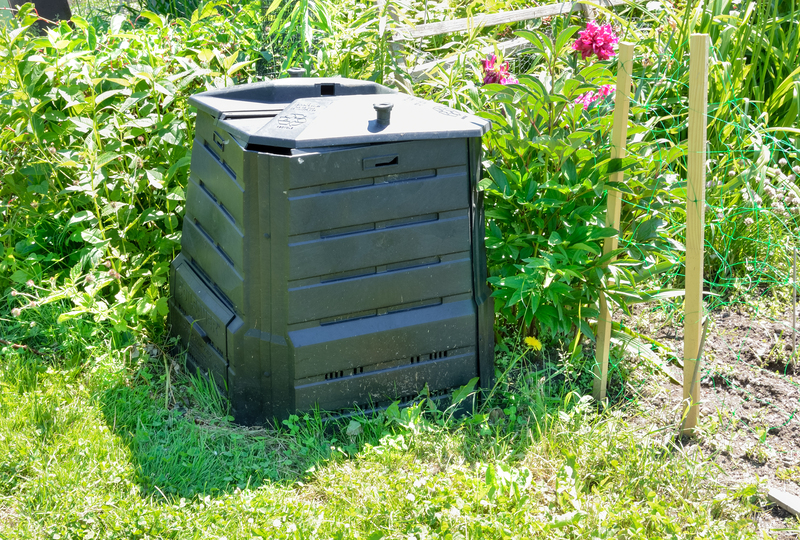Why Proper Waste Disposal Matters
Posted on 02/11/2024
Waste disposal is a critical component of environmental management and public health. Proper waste management processes ensure that waste is collected, transported, and disposed of in a way that minimizes negative impacts on the environment and human health. This article delves into the importance of proper waste disposal, discussing the various facets that underscore its significance.
Environmental Benefits of Proper Waste Disposal
One of the most compelling reasons for proper waste disposal is its positive impact on the environment. When waste is managed correctly, it helps to:
- Reduce pollution: Proper disposal methods prevent toxic substances from seeping into the ground and contaminating soil and groundwater.
- Conserve natural resources: Efficient waste management practices, such as recycling and composting, help conserve natural resources and reduce the need for raw materials.
- Reduce greenhouse gas emissions: Proper disposal of organic waste in composting facilities, rather than landfills, significantly reduces the release of methane, a potent greenhouse gas.
Improper waste disposal, on the other hand, can lead to severe environmental degradation. For example, illegal dumping and littering contribute to the pollution of rivers, oceans, and natural habitats, adversely affecting wildlife and plant life.

Health and Safety Considerations
Improper waste disposal poses significant health risks to humans. Failure to manage waste correctly can lead to:
- Disease outbreaks: Accumulated waste can become breeding grounds for pests such as rodents and insects, which are vectors for diseases such as malaria, dengue, and cholera.
- Water contamination: Leachate from improperly disposed waste can contaminate groundwater and surface water, causing waterborne diseases.
- Air pollution: Burning waste or dumping hazardous chemicals can release toxic fumes into the air, leading to respiratory problems and other health issues.
Ensuring that waste is disposed of properly helps prevent these health risks, safeguarding the wellbeing of communities.
Economic Advantages
Proper waste disposal practices can also have positive economic impacts. These include:
- Job creation: Waste management industries, including recycling and composting, create numerous jobs in collection, sorting, processing, and sales.
- Cost savings: Efficient waste management systems can reduce costs associated with waste collection, transportation, and landfill operations.
- Resource recovery: Recycling and composting divert waste from landfills, allowing the recovery of valuable materials that can be reused, thus reducing the economic burden of extracting and processing new raw materials.
In contrast, improper waste disposal can lead to increased costs related to environmental cleanup, public health crises, and lost economic opportunities.
Social Impacts
Proper waste disposal has several social benefits, including:
- Enhanced quality of life: Clean, well-managed urban and rural environments contribute to a higher quality of life for residents.
- Community pride: Effective waste management fosters a sense of communal responsibility and pride, encouraging citizens to take an active role in maintaining clean surroundings.
- Educational opportunities: Public awareness campaigns about proper waste disposal can educate individuals about the importance of environmental stewardship and sustainable practices.
Communities that prioritize waste management often become more cohesive, resilient, and sustainably developed.
Innovative Waste Disposal Technologies
In recent years, technological advancements have significantly improved waste management practices. These innovations include:
- Smart bins: Equipped with sensors to monitor waste levels and optimize collection schedules, these bins reduce overflow and improve efficiency.
- Waste-to-energy plants: These facilities convert non-recyclable waste into energy, providing a renewable source of electricity while reducing landfill use.
- Advanced recycling techniques: New methods can recycle a broader range of materials more effectively, reducing the volume of waste sent to landfills.
Adopting these technologies can further enhance the efficiency and effectiveness of waste disposal processes.
Legislation and Policy
Governments play a crucial role in regulating waste disposal practices through stringent policies and legislation. Key legislative measures include:
- Landfill bans: Prohibiting certain types of waste, such as electronic waste and hazardous materials, from being disposed of in landfills.
- Recycling mandates: Requiring businesses and households to separate recyclable materials from regular waste to ensure higher recycling rates.
- Extended producer responsibility: Holding manufacturers accountable for the end-life disposal of their products, thus encouraging eco-friendly product design and reduction of waste.
Effective enforcement of these regulations is essential to ensure compliance and promote sustainable waste management practices.

Individual Responsibility
While systemic approaches and technologies are crucial, individual actions also play a significant role in proper waste management. Each person can contribute by:
- Segregating waste: Separating recyclable, organic, and hazardous waste for appropriate disposal.
- Reducing waste generation: Adopting habits such as using reusable items, buying in bulk, and avoiding single-use plastics.
- Participating in community programs: Engaging in local clean-up drives, recycling initiatives, and composting projects.
By taking these small yet impactful steps, individuals can significantly contribute to the overall success of waste management systems.
Conclusion
Proper waste disposal is paramount for protecting the environment, ensuring public health, and fostering sustainable economic and social development. Through a combination of advanced technologies, effective legislation, and individual responsibility, the challenges of waste management can be addressed effectively. By understanding and embracing the importance of proper waste disposal, society can work towards a cleaner, healthier, and more sustainable future.


 020 3744 5548
020 3744 5548












